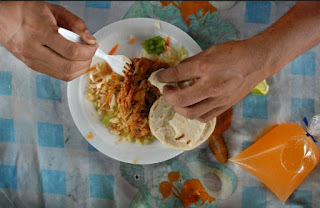With Christ, God has injected himself into history. With the birth of Christ, God’s reign is now inaugurated in human time. On this night, as every year for twenty centuries, we recall that God’s reign is now in this world and that Christ has inaugurated the fullness of time. His birth attests that God is now marching with us in history, that we do not go alone. Humans long for peace, for justice, for a reign of divine law, for something holy, for what is far from earth’s realities. We can have such a hope, not because we ourselves are able to construct the realm of happiness that God’s holy words proclaim, but because the builder of a reign of justice, of love, and of peace is already in the midst of us. Archbishop Oscar Romero Christmas Day, 1977 My best wishes for a Merry Christmas and Prosperous New Year for all the readers and friends of Tim's El Salvador Blog. May peace and justice flourish in 2009 in El Salvador and throughout the world!


